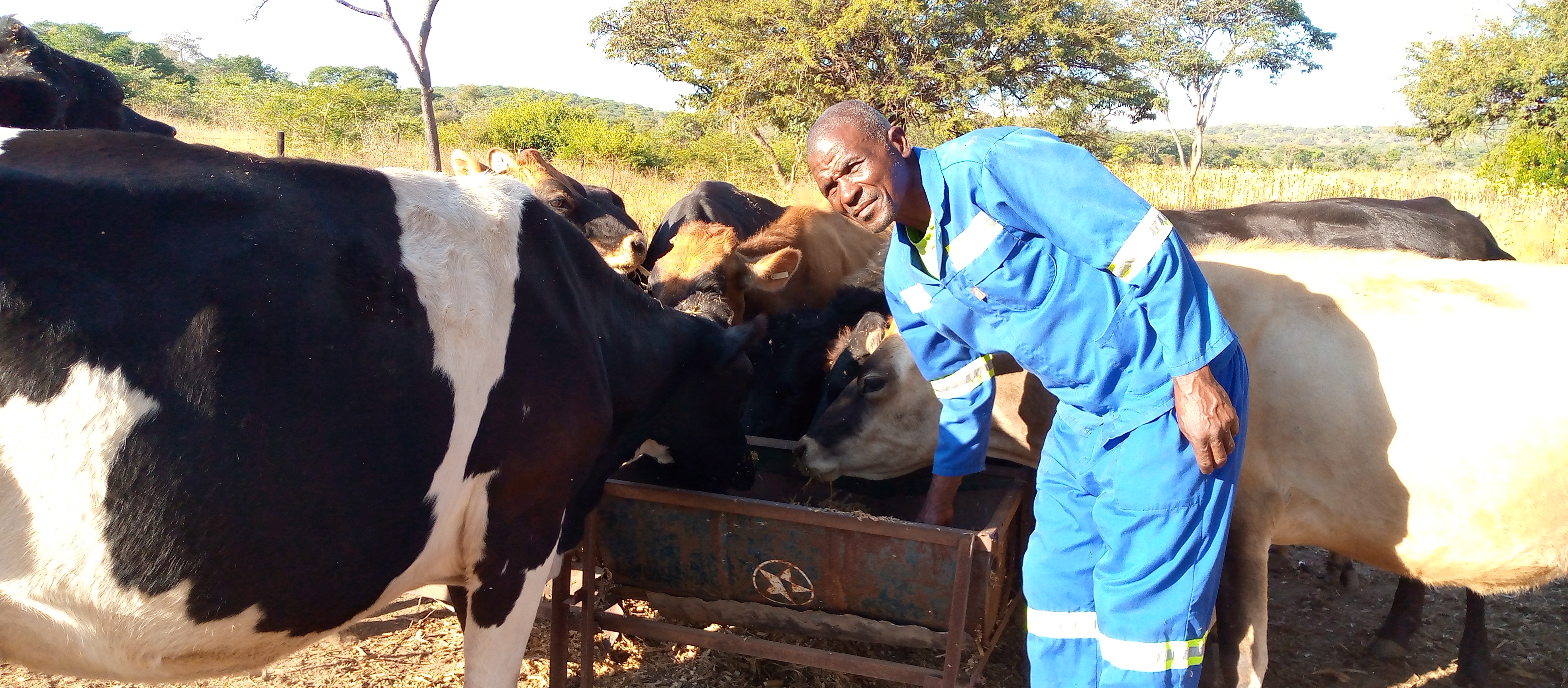
This policy research study on the role of extension in dairy production and marketing was undertaken on behalf of the Transforming Zimbabwe's Dairy Value Chain for the Future (TranZDVC) project. It employed a mixed methods approach and reviewed policies, programmes and practices to understand the role that extension and advisory services can play in improving smallholder dairy production and marketing. The study found that agricultural extension and advisory services have generally been changing in response to constraints faced by government extension workers as well as responding to the ever-growing challenges of low productivity faced by smallholder farmers. However, the general consensus from study participants, which was also confirmed in literature, is that there is limited extension support for the dairy value chain, particularly in terms of specialized extension services.
The major reason highlighted was that the current agricultural education curriculum lacks specialization courses and programs at lower levels of tertiary learning such as certificate and diploma levels. Despite the growing demand for specialized extension services, the calibre of extension workers available in proximity to the dairy farmers are not specialized in the field and tend to have biases towards general crop and livestock production aspects. The study also found that linkages between research, extension and the smallholder dairy farmers are either very weak or non-existent owing to lack of properly structured mechanisms for fostering the linkages. The study found lack of pronounced structures and approaches for disseminating available research findings from researchers to extension agents and eventually to farmers. As a result, research results and technologies generated from the research institutions are not being effectively disseminated to the farmers to have the desired impact. Most of the extension-related challenges currently being faced in the value chain are predominantly as a result of limited funding. The allocation of agricultural budget to extension leaves a lot to be desired. The proportion of the total agricultural budget allocated to extension continues to decline (from 15% in 2013 to 2% in 2017) despite the GoZ performing well in terms of national budget allocation to agriculture (at least 10%) in line with the Maputo and Malobo Declarations.
The dairy industry is faced with a number of challenges, including low productivity, high cost of production and low producer prices. Extension services, therefore, play a crucial role in resolving some of these constraints through provision of technical advice in production and marketing to help farmers eliminate inefficiencies along the value chain. Nevertheless, agricultural extension services in Zimbabwe face a plethora of challenges such as limited resources to enable them to become more effective and responsive to needs of smallholder dairy farmers. The study’s findings show that extension has evolved from dominantly being provided by the government using a transfer of technology (ToT) model, then the training and visit system to participatory pluralistic and integrated extension approaches such as the agricultural innovation systems (AIS).
